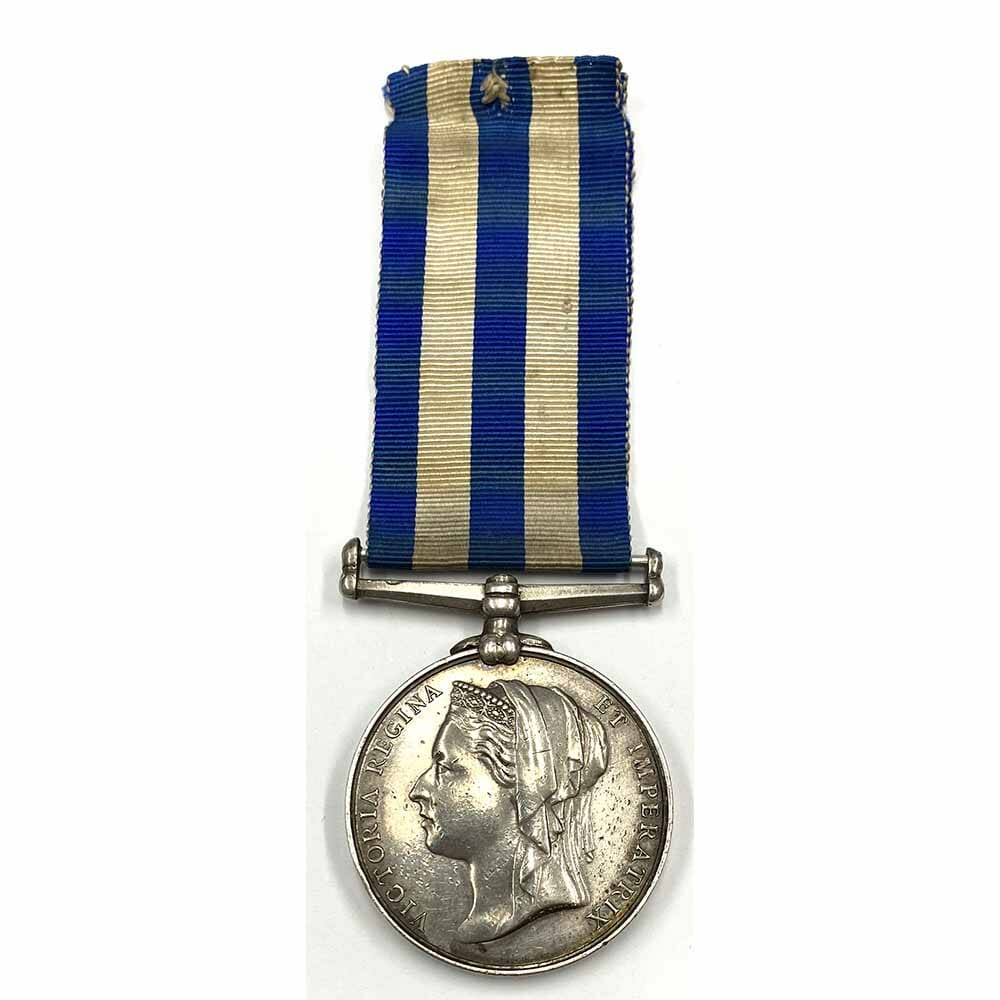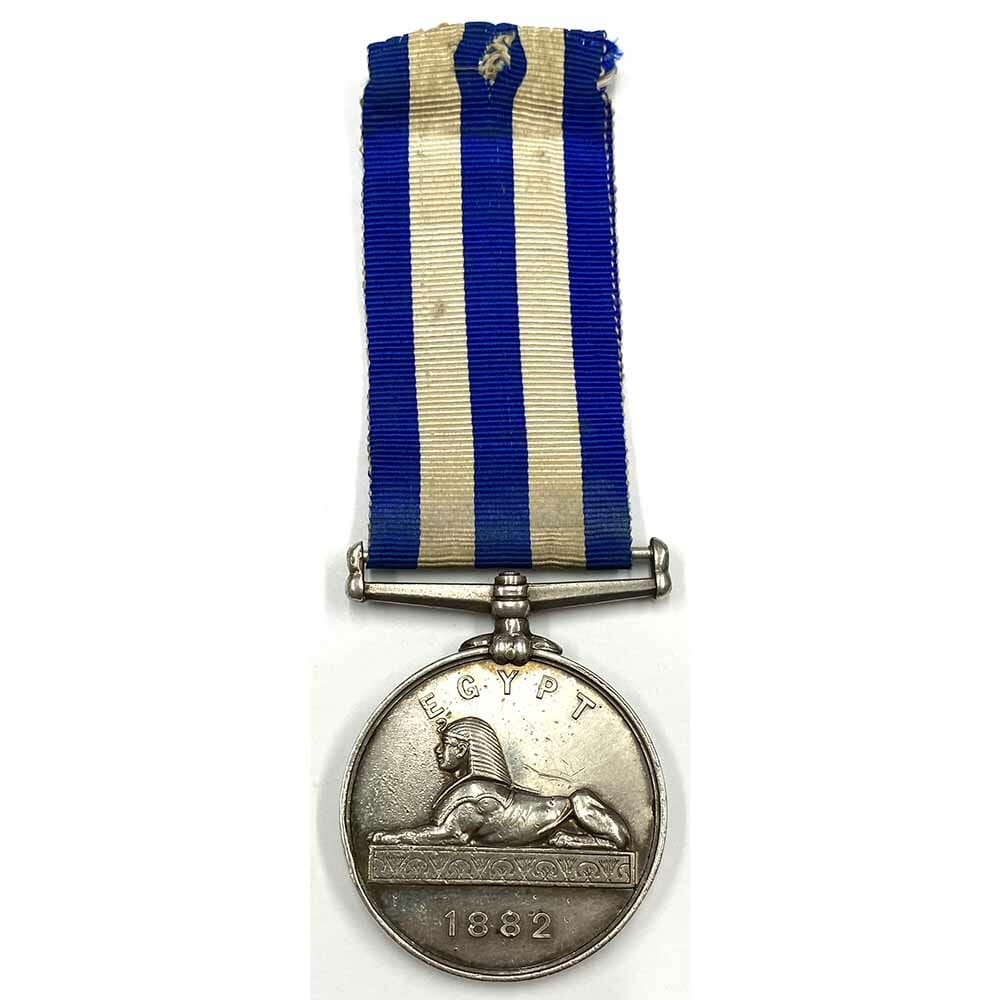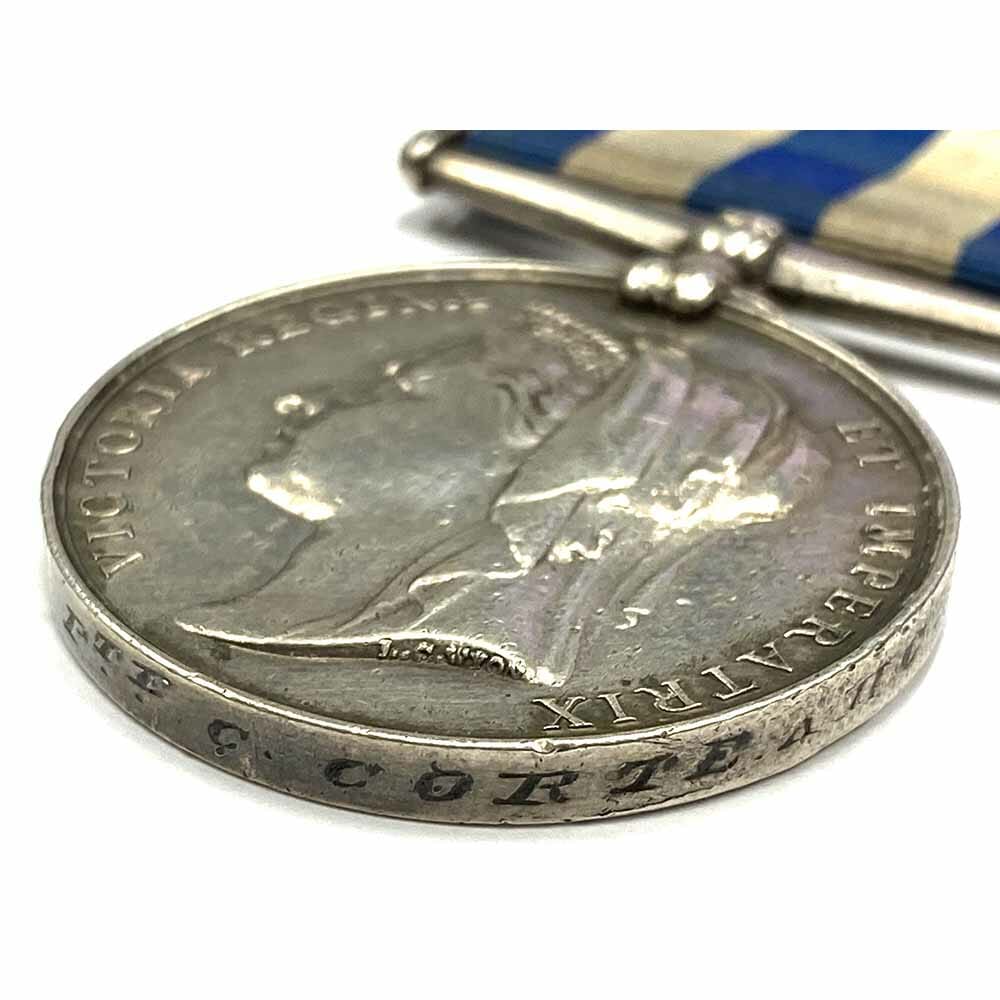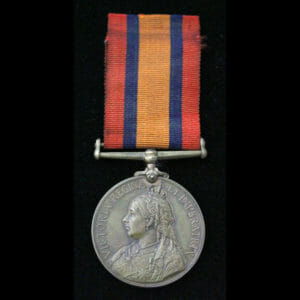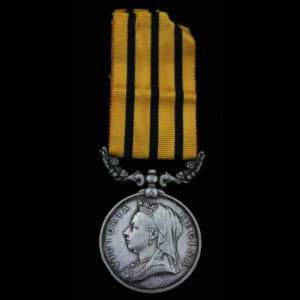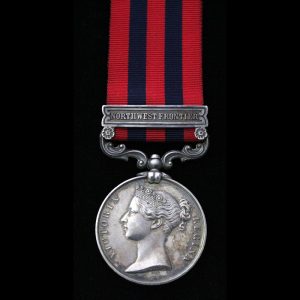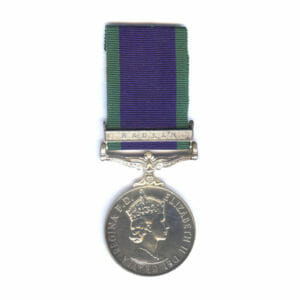Description
Egypt Medal, 1882, no bar, 4743 Private Charles Corte, Army Hospital Corps, died from self inflicted Cyanide poisoning during 1891 under mysterious circumstances.
Some pitting from wear along side a Khedive’s Star, officially engraved naming: “4743 Pte C. Corte. A.H.C.”
A rather unusual and strange character, Charles Corte was found to be a deserter almost immediately after enlistment, having then got drunk and stole a man’s stockings from the pub he was a lodger at, after evading arrest and being found with a forged pass and the 2 pairs of stockings on his person, he was arrested and taken to court, where he stated he had no real reason for his crime. Having done a month of hard labour, he was posted to Egypt to fight in the Anglo-Egyptian War with the Army Hospital Corps, where he reportedly rose to the rank of Sergeant.
By 1884 he had returned home and was discharged. He took up a job at the Middlesex Asylum in Wandsworth. By 1891 aged only 33, he suddenly resigned his position and arrived drunk at the Portland Chambers. Soon afterwards he was found to be in his bed dying, the Dr found a bottle of Prussic Acid, known as Cyanide, and he died shortly afterwards from poisoning.
In the meantime the Asylum had received a puzzling letter for him, signed only by a “Percy” from near Fulham, inquiring as to why they had not heard from him and if he was in trouble. The authorities were not able to trace Percy, who they believed to be a young woman, and more puzzling was in Charles Corte’s possession, they found a certificate of marriage by License between two people by the name of “Humphries” and “Owen”.
His death reported in the Marylebone Mercury, 21st February 1891:
“SAD SUICIDE IN WELLS STREET
At the Marylebone Coroner’s Court on Wednesday, Dr Danford Thomas held an inquiry into the circumstances attending the death of Charles Corte, aged 33, late residing at the Portland Chambers, Wells-Street, who committed suicide on Saturday last by taking Prussic Acid.
The evidence showed that the deceased, who was a retired Sergeant in the Army Medical Staff Corps, had been an attendant at the Middlesex Aslyum at Wandsworth, he resigning his position recently for no apparent reason.
On Wednesday the 11th inst, he, as was alleged, arrived at the Portland Chambers under the influence of drink and engaged a room.
On Saturday morning he went out and returned, and on the proprietor of the Cambers going to his room in the evening to ask him if he would take any tea, he found him in bed, dying.
A doctor was immediately sent for, who on arrival announced life extinct.
The room smelt strongly of Prussic Acid, and on a table at the foot of the bed a blue bottle was found which had contained the deadly poison.
Dr Nix made a post mortem examination and found death was caused by poisoning with prussic acid.
Since his departure from the Asylum where he was an attendant a letter had been received there, evidently from a young woman, signing herself “Percy,” but giving no address, although the post-mark showed that the letter had been posted in the neighbourhood of Fulham.
In the letter it said, “Why don’t you write to me; are you ill, or are you in trouble? Do write soon.”
The deceased had always represented himself as a Bachelor, but a certificate was found, showing that a marriage by license took place in 1888 between a Humphries and an Owen. Although the deceased did not go under the name of Humphries the description given seemed to correspond.
The deceased, it was stated, had no relatives.
The Coroner remarked that perhaps when the reports in the newspapers were read somebody would come forward with some information.
The Jury returned a verdict that the deceased committed suicide whilst temporarily of unsound mind.”
Charles Corte was born during 1859 in Bristol, Gloucestershire, the son of John Corte, a Journeyman Shoemaker and Mary Corte, a Tailoress. Charles was noted on the 1881 Census as a 22 year old Porte, and it appears to have been taken shortly before he attested with the Army Hospital Corps.
After returning home from the Egyptian War, he was discharged and found in the July Quarter 1884 Chelsea Pensioner’s Discharge Book.
By August 1881, he was found to have deserted from service, and strangely convicted for stealing a mans stockings, noted in a lengthy article in the Wellington Journal 20th August 1881:
“STEALING STOCKINGS – At the Borough Police Court on Friday week, before the Mayor (T. Minshall Esq), T.P. Parry and Robert Blaikie, Esqrs.
Charles Corte, a deserter from the Army Hospital Corps, was brought up on remand charged with stealing two pairs of stockings, the property of Isaac Jones, and valued at 3s. – The prosecutor, who keeps the Three Tuns, said:
THe Prisoner was brought in uniform to my house on the 4th of August, and remained there from that day, Thursday, until the Sunday morning as a lodger.
He went to bed about 9 o’clock on Saturday Night. On the following morning, about 8, my wife told me that his bedroom door was open.
I went to look, but found he was gone. I went downstairs and found the window between the passage and the bar was open. His cap had been left in the bar parlour on the previous evening, and it was now gone.
He had got into the bar through the window, which, as a rule, is fastened, though I cannot swear it was that night.
He had unlocked 2 doors and got into the entry, and then he had climbed over the entry door into the yard.
Then he got into Bailey Street. I at once went to the police to see whether they had seen him. I returned, and my wife said he had missed two pairs of stockings. I had not noticed them in the bar on the Saturday. The stockings produced are my property; I recognise them. I estimate their value as 3s.
When the prisoner left he was indebted to me in the amount of 12s 6 d.
Elizabeth Jones, wife of the prosecutor, said: On Saturday night I left 3 pairs of stockings in the bar. They belonged to my husband. On Sunday I missed two pairs. The stockings produced were the missing ones. There is a mark one one of them.
Police-Constable Mapp said: On Thursday, the 4th, between 5 and 6 in the evening, the prisoner came to the Police-Box in the Cross, in the uniform he now wears. He said he had come to report himself as he was on duty, and asked if we could show him to respectable lodgings, as he was fatigued.
I took him to the Three Tuns, and Mrs Jones agreed to accommodate him. We then walked away, and I saw no more of him until Saturday.
He is a soldier in the Army Hospital Corps.
On Sunday Morning, at 7, Mr Jones came to the Box and said the soldier had gone. I afterwards received information that 2 pairs of stockings had been missed. I then went to the Three Tuns, and afterwards in search of the Prisoner. I traced him through Gobowen to the Lodge, when I got the assistance of Police-Constable Cole, and we went to Llangollen. I went on towards Corwen, but as I could find no trace, I returned to Llangollen, where I found he had been locked up by Police-Constable Cole in the Llangollen Lockup.
I found from the Police Gazette that the prisoner was a Deserter, and he admitted that he was.
Police Constable Cole said: At 1 O’clock on Saunday afternoon I received information from Police-Constable Mapp of the prisoner being missing, and I went in search. We failed to get a trace for some time.
Police Constable Mapp went on towards Corwen, while I remained in Llangollen. About 8 O’clock I was near the Royal Hotel, and saw the prisoner coming down the direction of the Church.
Police Constable Rowlands went up and took hold of him, and I followed, and took him into custody. I then took him to the Lockup, and charged him with breaking out of the house and stealing the stockings.
He replied, “It is all right, I did do it.” I found one pair under his tunic over his right shoulder, and the other pair he was wearing. I took possession of both pairs, and I now produce them.
Prisoner was brought here on the following morning. I found a pass in searching him. I returned it to him, but afterwards got it back in order that I might have his right name. He tried to make away with the pass, but failed, and afterwards admitted that it was an entire forgery.
The charge was read over, and the prisoner elected to be tried summarily, his plea being “Guilty.” When asked what he had to say he appealed to their worships to be as lenient as they could. He should not have done it, he said, had he not been under the influence of Drink. If he had had any felonious intention he should have taken something more valuable, having had the opportunity of doing so. He had a severe punishment in view for leaving the army. He might add that Mr Jones would have his bill paid by the Paymaster.
The Mayor, in passing sentence, said the Bench were grieved to the prisoner in that position, and expressed a hope that the punishment which they gave him would be the means of reforming him – Prisoner was sentenced to 1 month’s hard labour.”
